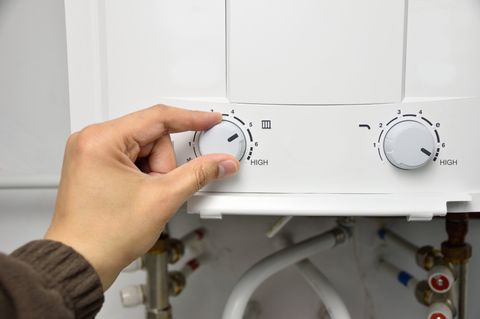Call Us Now!
800-371-8610
Save On Your Energy Bill
Understanding Heat Loss And How It Effects Efficiency
To significantly reduce your heating costs, there are basically two steps you can take:
- Reduce your home’s heat loss (the amount of heat lost through ceilings, walls, windows and doors). By insulating and adding storm doors, storm windows and caulking/weather-stripping you can reduce your fuel bills.
- Improve the efficiency of your heating system. Efficiency is a measure of how well your boiler converts fuel into the heat used to make you comfortable. Studies by Brookhaven National Laboratory and Honeywell, Inc. indicate that the seasonal efficiency of the “typical boiler” in operation today is approximately 60%. If your boiler is “typical”, 40% of the money you spend for fuel is wasted.
The Difference In An Inefficient Boiler vs. High-Efficiency Boiler
An inefficient boiler can keep your house warm – but in doing so, it sends a large portion of the money you spend on fuel right up the chimney. The inefficient boiler simply doesn’t convert enough of your fuel into useful heat. It not only wastes heat while it’s operating, but it also loses more heat up the chimney when cooling down after it shuts off.
Today’s high-efficiency boilers are not only smaller and more compact, but they also convert more of the fuel you buy into the heat needed for comfort. Your fuel bills will be lower compared to an inefficient unit because more of the heat is extracted and used to heat your home. A minimal amount of heat is lost up the chimney.
Start Saving On Your Energy Bills Today At 973-743-8610!
CONTACT INFORMATION
Phone: 800-371-8610
Phone: 973-743-8610
Address: 80 Beach Street, Bloomfield, NJ 07003
William J. Falco New Jersey Master Plumber Lic.# 8720
William J. Falco Jr. New Jersey Master Plumber Lic.# 11615






Serving The Following In Essex, Passaic, Hudson, and Bergen County
Belleville
Bloomfield
Brookdale
Caldwell
Cedar Grove
East Orange
East Rutherford
Essex Falls
Fairfield
Glen Ridge
Jersey City
Kearny
Little Falls
Livingston
Lyndhurst
Maplewood
Millburn
North Arlington
North Caldwell
North Haledon
Nutley
Orange
Roseland
Rutherford
South Orange
Totowa
Verona
Wayne
West Caldwell
West Orange
Content, including images, displayed on this website is protected by copyright laws. Downloading, republication, retransmission or reproduction of content on this website is strictly prohibited. Terms of Use
| Privacy Policy

